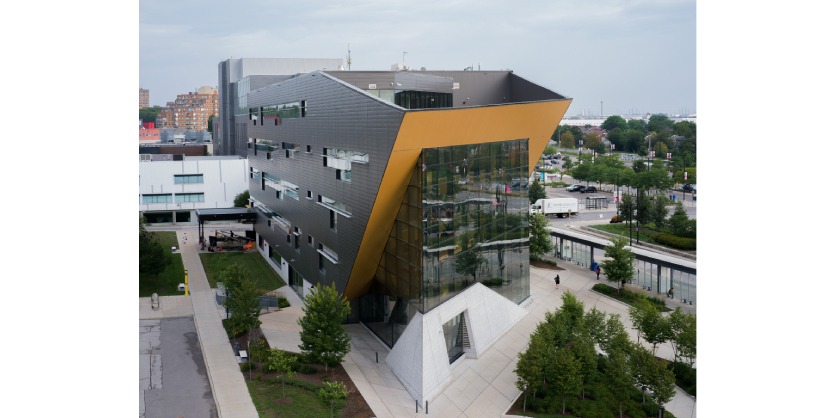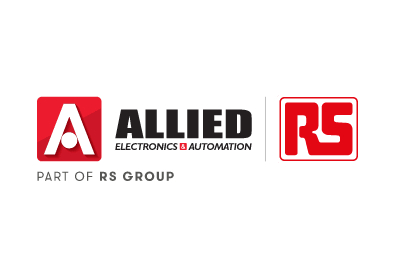Siemens and Humber College: A Truly Sustainable Partnership
January 18, 2024

Having been partners for decades, Humber College in Toronto and Siemens have forged a long-term strategic alliance to advance higher education and support an ambitious campus decarbonization plan.
Creating academic opportunities, advancing sustainability
Today’s global challenges call for immediate action, including experiential education for tomorrow’s sustainability leaders. Strategic partnerships between higher educations and technology companies help achieve these objectives.
Global megatrends, such as demographic change, urbanization, climate change, and digitalization, are ushering in an array of new global challenges. Addressing these challenges will demand a significant pool of well-trained specialists capable of developing technical solutions and implementing them comprehensively.
Higher education institutions bear the responsibility of fulfilling this educational mandate while simultaneously spearheading the development of appropriate technologies and taking a practical leadership role in the journey toward decarbonization and sustainable operations.
Humber College recognized early on that building a long-term partnership with a leading technology company like Siemens could unlock new opportunities to tackle challenges too complex to address in isolation.
Driving the energy transition in daily practice
As early as 2019, Humber held a customer value co-creation workshop in collaboration with Siemens to generate ideas and outline their practical joint implementation.
In 2021, these activities culminated in the signing of a memorandum of understanding, outlining the collaborative efforts between Humber and Siemens to enrich the academic curriculum and expand applied research and learning opportunities while enabling the college reach net-zero carbon for scope 1 and 2 emissions with limited use of offsets by 2050. Humber leverages Siemens’ domain expertise, cutting-edge technology, and extensive product portfolio to enhance student engagement while fostering knowledge sharing in specific areas of mutual interest.
Notable outcomes so far include the implementation of building automation across both campuses, HVAC equipment optimization and controls upgrades, and the creation of a sustainable microgrid on campus powered by distributed energy resources and including battery energy storage, EV charging stations, and a load simulator.
A special highlight was the opening of the Sustainable Microgrid and Renewable Technology Lab (SMART Lab) in 2023. It provides students and external partners with hands-on experience in operating microgrids technology that grants greater control over power distribution and helps optimize consumption to minimize energy waste.

Our energy transition to address climate change and a greener planet requires all hands on deck. This partnership with Siemens Canada will allow our students to learn about and research the latest in microgrid technology. Dr. Ann Marie Vaughan, President and CEO, Humber College Institute of Technology & Advanced Learning
Dr. Ann Marie Vaughan, President and CEO, Humber College Institute of Technology & Advanced Learning
A smart sustainability journey with multiple facets
Humber College is aiming to reach net-zero carbon for scope 1 and 2 emissions with limited use of offsets by 2050, and reduce energy and water usage, as well as GHG emissions, by 2034.
Partnering with Siemens, the college has achieved significant sustainability goals, bringing campus infrastructure up-to-date, and implementing renewable power generation and a dedicated microgrid. These measures help make Humber a national leader in sustainability. The college was the first in Canada to achieve Zero Carbon Design Certification and Passive House designation for its NX Building located at Humber’s North campus. These projects provide the college with OPEX savings and are transforming its two campuses into living labs for learning and research opportunities.
Trendsetting building automation
The implementation of most efficient Siemens Desigo building automation solutions across Humber’s North and Lakeshore campuses for all new renovations and new builds enables the college to achieve its carbon reduction targets while improving both OPEX and campus resilience.
Up-to-date HVAC
HVAC equipment optimization and controls upgrades across campuses have enabled Humber to maximize cost-efficiency and ensure compliance with ASHRAE standards, providing a healthy and comfortable indoor environment on campus.
Sustainable power generation
The implementation of a microgrid system comprising distributed energy resources such as rooftop photovoltaic panels, a Smartflower photovoltaic array, and a battery storage system, helps Humber reduce GHG emissions and energy costs while boosting the campus’s energy resilience.
Smart microgrid management
A SICAM A8000 microgrid controller and a Siemens-built distribution control panel at the heart of Humber college’s microgrid enable smart energy management and provide the basis for the SMART Lab.
SMART Lab
The SMART Lab is a living lab that uses the wealth of data provided by the campus microgrid. It equips current and future professionals with unique hands-on experience in microgrid technology to address the energy industry skills gap.

In order to tackle the economic, resource, and climate challenges that lie ahead, industry and academia must fast-track, test currently available technologies, and prepare students with the skills to deploy them. Our partnership helps bridge this gap, and we’re honored to have a like-minded partner in Humber College. Faisal Kazi, President and CEO, Siemens Canada
Faisal Kazi, President and CEO, Siemens Canada
Related Story
Smart Lab Opens at Humber College’s North Campus
Humber College and Siemens Canada have developed a Sustainable Microgrid and Renewable Technology (SMART) Lab that will be used to teach students about microgrids.
Microgrids are systems that reliably manage the generation, storage and consumption of energy. Essentially, they’re small-scale power grids that can operate on their own or as part of a larger grid.



